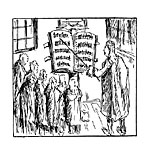
The Triumph & Tragedy of the Most Misunderstood Document in Modern Church History
HUMANAE VITAE AT 50
For over 25 years I have been studying, writing, and speaking about Bl. Pope Paul VI. I did research at the Paul VI Institute in Brescia, Italy; corresponded with his personal secretary, Msgr. Pasquale Macchi; visited his home church and the surrounding locale; interviewed countless persons about him; and accumulated a substantial Paul VI library (including a copy of his Testament in both Italian and his own handwriting). I reviewed his teachings and life exhaustively both before and during his papacy. I wrote a book about him entitled Pope Paul VI: Christian Values and Virtues (Crossroad Publishing Company) and have two more coming out this year (from New City Press and TAN Books) in anticipation of his canonization.
I have come away from my explorations not only with a deepened personal and professional appreciation of Paul VI, but a strengthened conviction that he was the most administratively competent, cultured, prophetic, and misunderstood pope of the 20th century, and that his most criticized endeavor, Humanae Vitae, is a watermark in Church history for reasons that are rarely understood. This encyclical is most accurately perceived as both a tragedy and a triumph that has greatly affected the identity and self-understanding of the modern Church.
You May Also Enjoy
It is in Japan where the problem and ramifications of marked declines in birthrate, both present and projected, are most evident.
Our life, and each life, is really God’s and no one else’s, and must be treated as such. Life is not something we earn or something owed to us, it is purely a gift.
John Paul II wrote, “The mentality which honors women more for their work outside the home than for their work within the family must be overcome.”

